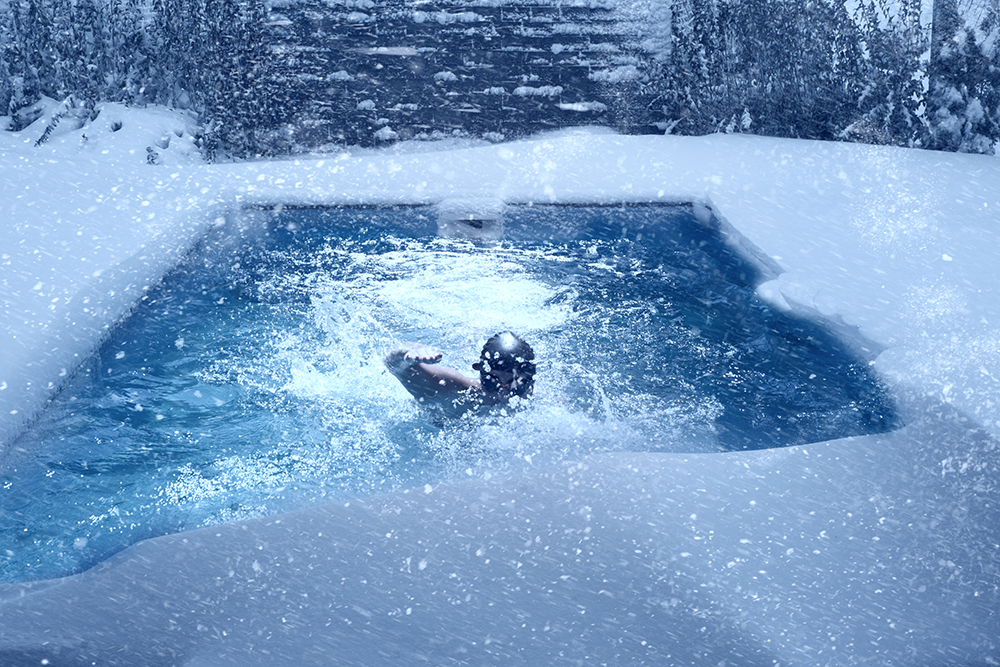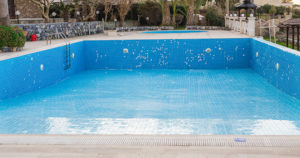Upcoming Winter Pool Maintenance

Believe it or not, winter pool and hot tub preparations vary depending on the size. Location around the country also plays a role. In the northern states, it is not uncommon to completely drain a swimming pool for winter preparation. Of course, the next smart step would be to prevent any debris from entering. Luckily, us Florida residents don’t need to concern ourselves with emptying our pools. It is an endless summer down here in the Sunshine State! If you are interested in “winterizing” your pool, watch this resourceful YouTube video. Now, we’ll explain everything you need to know for your upcoming winter pool maintenance.
 Winter Pool Maintenance
Winter Pool Maintenance
For Floridians and other pool owners in tropical climates, we believe there is no need to “winterize” your pool. However, more care and maintenance should be taken during the months with less use such as the winter months. Nowadays, those winter months only fall between December and February.
- Continually cleaning your pool–keep your filter clean and vacuum it as you usually would. Regardless of use, it’s still very important to maintain a cleaning routine. Empty your debris traps every few days to prevent leaves and rubbish from thickening and clogging your pool’s filtration system.
- Monitoring your water level–due to evaporation and temperature fluctuations, you may need to add water as the weather warms up. As rainfall decreases and chilly days become more common, the water in your pool will begin to evaporate. Don’t be surprised if your water level drops one or two inches per week. To prevent your pool’s water level from getting too low, monitor it and add water back as needed. Unless you’re still using your pool frequently, only worry about adding water now. Save the chemicals, stabilizers, and treatments for a few days before you plan to open the pool back.
- Preventing an algae build-up–test the water and keep it circulating. Even in winter, many areas of Florida are prone to an algae bloom, due to changing temperatures, humidity, and weather conditions.
- To prevent algae, test your swimming pool’s water chemistry and balance as needed.
- Since the water temperature will be cooler as a result of weather and infrequent use, you can reduce the chlorine level slightly.
- Lastly, set your circulation pump to run 4-6 hours per day to keep the water circulating.
- Investing in a pool heater–what about enjoying your pool even when the weather dips? A pool heater can make your summer pool a year-round pool! Contact us for no-risk consultations on pool heaters specific to your pool type and size.
Pool Food For Thought
The questions regarding wear and tear often arise when the winter months approach. Should you run the pool pump in the off-season? If so, how many hours a day? What about pool damage caused by changing weather? How to preserve all the pool parts until reopening the pool? Here are a few thoughts to consider:
Your Pool’s Pump
The purpose of your pool pump is to circulate the pool water through the skimmer and main drain(s), through the filter and back into the pool. Naturally, your pool’s filtration system depends on the pump being in operation.
Florida pool owners–especially those in the Bradenton, Sarasota and Lakewood Ranch areas–should realize that even if pool water is clean and clear to the naked eye, it may not have the proper chemical balance. Even with a floater of chlorine tablet floating around, the pool chemicals are not 100{49719dccefdf8f13231f745f8029506257ec6f55a0466a63a6a49aacfde2ef6e} effective until they’re circulating by your pump. Putting them into motion allows them to kill the bacteria. Therefore, in the grand scheme of things, it is worth it to run your pool’s filter minimally on a daily basis. Think of it as a stored vintage or antique car in your garage. Every now and then it’s critical to start her up and let the oil run through the engine, keep the parts moving so they don’t deteriorate or cause damage. Speaking of damage…
Interior Pool Damage
Concentrated chlorine tablets that are not properly circulated throughout the pool can damage the pool’s interior. Pitting or etching is also more likely to occur in pools whose chemical balances are not kept at an optimum level throughout the year. This can be a very costly problem to fix, usually requiring replastering of the pool’s interior surfaces (then consider a drain and refill). It’s also helpful to the pump itself to run since this heats up the motor and evaporates the humidity and water that can harm the motor.
In Sum
While enjoying life in the subtropical climate of Florida, there are certain maintenance tasks for your pool that need to be handled when the weather cools. The Florida winter months are always up and down in temperature. Maintaining your pool properly year-round will go a long way to keeping it in good working order!
Erik’s Aquatic Care is always here to answer questions you may have as a current or future pool owner. Cheers!


0 Comments